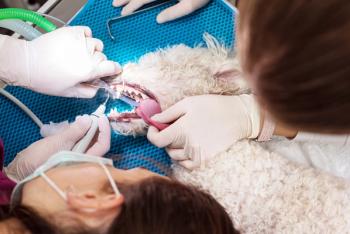
A spill of support for the Gulf
The veterinary community is hard at work trying to help wildlife affected by the BP oil spill.
News headlines for the last month and a half have been dominated by the BP oil spill in the Gulf of Mexico. The stories tell a tragic tale of lost lives and livelihoods. Some of the most troubling articles outline how hundreds of bird and marine species are being affected by the black goo that's encroaching upon their habitats. The devastation to people and animals alike is truly terrible.
However, as in many sad situations, there's a glimmer of goodness: the people who are working to protect the wildlife threatened by the oil. Not surprisingly, many of the rescue efforts are being led by members of the veterinary community.
Veterinarians head up various organizations that are either poised to help or are already helping. The Louisiana Department of Wildlife and Fisheries, for example, is directed by Dr. Mike Strain. At press time, he reported the organization had moved 3,000 cages to the southern tip of Louisiana to aid rescued animals. He also said additional resources are being directed to staging areas along the coast to help biologists and wildlife rehabilitation specialists care for oiled birds and other mammals.
Florida veterinarian Dr. Norm Griggs roused up 7,000 volunteers who are ready to get to work if and when the spill reaches Florida. And Dr. Michael Ziccardi, an associate professor at UC-Davis, heads up the Oiled Wildlife Care Network. The organization's blog (owcnblog.wordpress.com) offers an inside look at what's being done to care for animals.
Yet another group of veterinary professionals-NorthStar VETS in Clarksburg, N.J., Broad Ripple Animal Clinic in Indianapolis, and Wedgewood Pharmacy-formed an informal organization called Join the Paws. Through a Twitter and Facebook campaign, the group raised $150 in just four days to support the National Wildlife Federation and its cleanup and rescue efforts.
Pelicans, sea turtles, dolphins, and countless other animals along the coast face a serious threat from the oil. Thanks to dedicated people like you, that threat is just a little less daunting.
Newsletter
From exam room tips to practice management insights, get trusted veterinary news delivered straight to your inbox—subscribe to dvm360.





